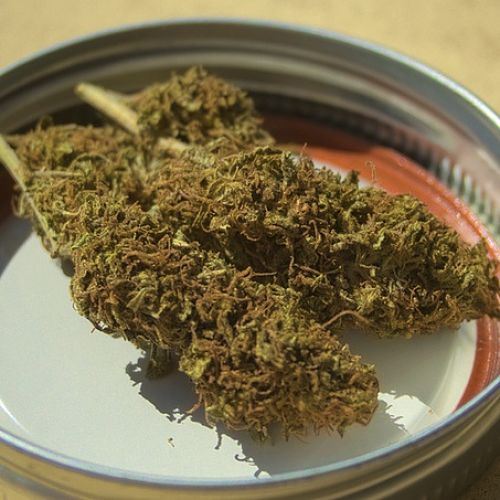Cannabis plants contains over 480 different compounds, of which 66 are the naturally occurring compounds known as cannabinoids.
Delta-9-tetrahydrocannabinol(Δ9-THC) is the most famous compound found in Cannabis, and it is this compound, THC, which is the the dominant psychoactive ingredient in the plant.
Another important component, making up approximately 40% of the resin extract of the plant is cannabidiol (CBD).
What Classes of Cannabinoids Are There?
Cannabinoids can be divided into a number of subclasses. The main ones being:
Cannabichromenes (CBC)
Cannabidiol (CBD)
Cannabinodiol (CBDL)
Cannabielsoin (CBE)
Cannabigerols (CBG)
Cannabicyclol (CBL)
Cannabinol (CBN)
Cannabitriol (CBT)
Tetrahydrocannabinol (THC)
What Are the Effects of Cannabinoids?
The effects of cannabinoids are felt when they come into contact with receptors that can be found in various parts of the central nervous system. Researchers have identified two types of receptors which they have named as CB1 and CB2 receptors.
Memory, psychomotor performance and cognition are all affected by cannabinoids. The mesolimbic pathway can also be affected by these compounds, changing how we perceive pleasure and reward. Pain perception can also be altered.
How Do Cannabinoids Interact With the Body?
Cannabinoids interact with the body’s endocannabinoid system, which plays a crucial role in regulating various physiological processes such as appetite, pain sensation, mood, and memory. This system consists of endocannabinoids (cannabinoids produced naturally by the body), cannabinoid receptors (CB1 and CB2), and enzymes that synthesize and degrade endocannabinoids. When cannabinoids from cannabis bind to these receptors, they can alter the release of neurotransmitters in the brain, leading to the various effects associated with cannabis use, such as altered perception, mood changes, and impaired memory and coordination.
What Are the Differences Between Cannabinoids?
The differences in cannabinoids are measured mainly in their levels of psychoactivity.
The most psychologically active agents are THC, CBN and CBDL. The other cannabinoids are not known to have high levels of psychoactivity.
CBD is the most abundant of the cannabinoids. It is believed to produce anti-anxiety agents which may work to counter the psychoactive effects of THC. It is the main component of cannabis oils, which are becoming more and more popular as a remedy for many health ailments. Cannabis oils that contain high levels of THC are illegal. You should only buy cannabis oil from reputable shops and online sellers. Using correctly manufactured CBD oil should not cause you to get a positive drug test after using cannabis oil.
THC is also known to form CBN when it becomes exposed to air. This means that cannabis that has been left out in the air will have a weaker psychoactive effect due to the lower THC to CBN ratio.
Cannabinoid Levels in Skunk Cannabis
Skunk Cannabis is particularly strong strain of the plant. The drug is light green in colour and made from the buds of the cannabis sativa. Because it is grown very quickly, it has low levels of CBD and high levels of THC. This gives skunk the extra potency over normal cannabis.
Skunk is produced in various strains some of which are sold under names such as supersilver, northern lights, purple haze, white widow, lemonhaze, cheese and amnesia.
Some users of skunk may feel paranoid or panicky when stoned, mainly because of the low levels of CBD in the drug. However, until the drug is taken there is no knowing how it will effect you. Often, your mood or your surroundings can greatly influence how the drug makes you feel.
The Potential Therapeutic Benefits of Cannabinoids
While the psychoactive effects of THC have led to the recreational use of cannabis, researchers are increasingly interested in the potential therapeutic applications of various cannabinoids. For instance, CBD has shown promise in treating conditions such as epilepsy, anxiety, and chronic pain. Additionally, cannabinoids have been studied for their potential anti-inflammatory, neuroprotective, and anti-tumor properties. As research continues to unveil the complex interactions between cannabinoids and the human body, it may lead to the development of novel therapies for a wide range of medical conditions.
Photo Credit: Mark on Flickr
Zoom Testing is a leading UK drug testing company and a supplier of Drug Test Kits.





